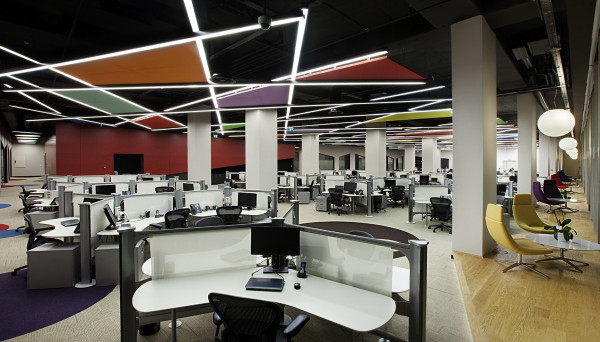
Open Offices -- you either love them or hate them. Lately, it seems more and more people are turning against open office plans, saying they hinder productivity and overall work performance despite the collaborative atmosphere. Jason Feifer, senior editor at Fast Company, is one of those people. He makes a convincing argument as to why open offices are the wrong way to go, but he made one point that really stood out -- in an open office you're time is not your own.
Open offices, by default, lead to interruptions. Those who support open offices will argue that these interruptions are good because it keeps lines of communication open. However, when a colleague is interrupting you, they probably never considered that you might be busy focusing on a difficult task or working on a pressing deadline.
"This is the problem with open-office layouts: It assumes that everyone’s time belongs to everyone else. It doesn’t. We are here to work together, sure, but most of the time, we actually work alone," Feifer writes. "That’s what work is: It is a vacillation between collaboration and solitary exploration. One isn’t useful without the other. When we are working in a group--literally when we sit around a table brainstorming, or when we are having a conversation--we don’t pretend we’re alone. That would just be weird and awkward. So when we’re alone, let’s not pretend we’re in a group."
Open offices give your time to your colleagues and take away your control over your schedule. At any moment, you might be enlisted for an impromptu brainstorming session or meeting. Sure, this can happen in any office format, but an open office takes away your ability to tell people you're busy and you'll be available in an hour's time. Your time becomes theirs, and this lack of control leads to a lack of productivity.
What do you think of open offices? Are they bad for productivity? Tell us in the comments below!







